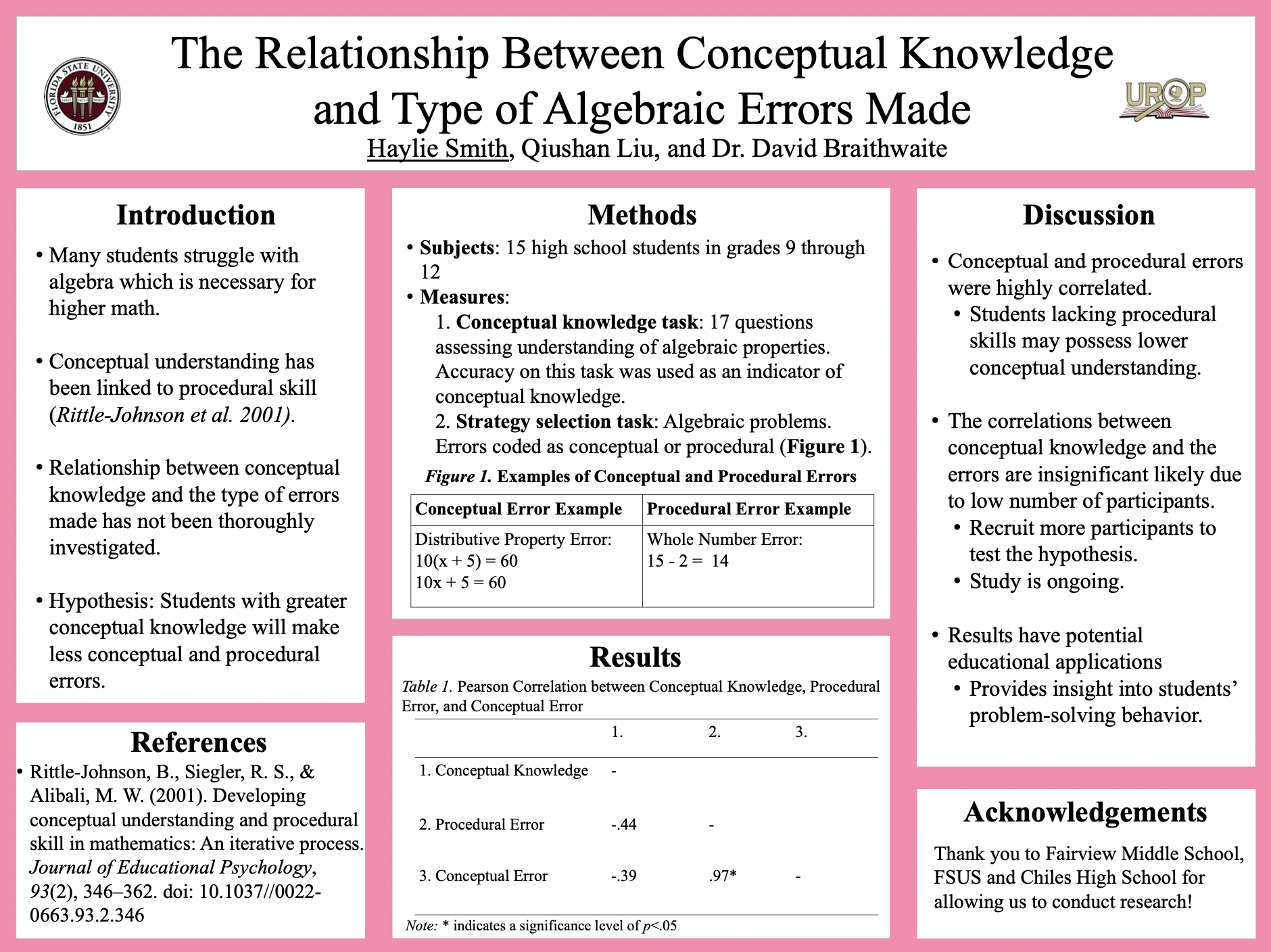Research Symposium
24th annual Undergraduate Research Symposium, April 3, 2024
Haylie Smith Poster Session 2: 10:45 am - 11:45 am/314

BIO
Hi! My name is Haylie Smith. I’m a first year Behavioral Neuroscience major at Florida State University, and I’m from Sarasota, Florida. The research I am assisting with focuses on aspects of algebraic problem solving, which is essential for students’ success in algebra and higher math. I plan to make the most of my time here at FSU so that I can grow as a student, researcher, and person by continuing my involvement in psychological research. My goal is to go to medical school and become a physician! In my free time, I love playing with my dog, drawing, and spending time with friends.
The Relationship Between Conceptual Knowledge and Type of Algebraic Errors Made
Authors: Haylie Smith, Qiushan LiuStudent Major: Behavioral Neuroscience
Mentor: Qiushan Liu
Mentor's Department: Department of Psychology Mentor's College: College of Arts and Sciences Co-Presenters:
Abstract
Understanding and being able to solve algebraic problems is essential for high school students who want to progress to advanced math and further education. Conceptual knowledge is the understanding of algebraic principles, and procedural knowledge is the knowledge of the procedure, which is the steps to solve the problem. Past studies like Rittle-Johnson et al. 2001 have found conceptual and procedural knowledge to be positively related. However, past research has not thoroughly explored if higher conceptual knowledge indicates that students are less likely to make mistakes reflecting conceptual understanding (e.g., solving 2(x+2) as 2x+2 is an error reflecting a conceptual misunderstanding of the distributive property). Participants completed a packet testing their conceptual knowledge and problem-solving ability. The errors students made in the problem-solving section were coded to be conceptual or procedural. The number of conceptual and procedural errors students made was correlated with their score on the conceptual knowledge task. There was a high correlation between conceptual and procedural errors, suggesting participants typically commit both types of errors at the same time (r(13)=.97, p=0.000). We observed an insignificant negative correlation between conceptual knowledge and procedural errors (r(13)=-.44, p=0.100) and an insignificant negative correlation between conceptual knowledge and conceptual errors (r(13)=-.39, p=0.145), likely due to the low number of participants. Still, the findings suggest when students have better conceptual understanding of algebraic concepts, they may make less conceptual and procedural errors. With improved conceptual understanding, students could perform better overall in math, setting them up for future success.
Keywords: conceptual knowledge, algebraic errors


